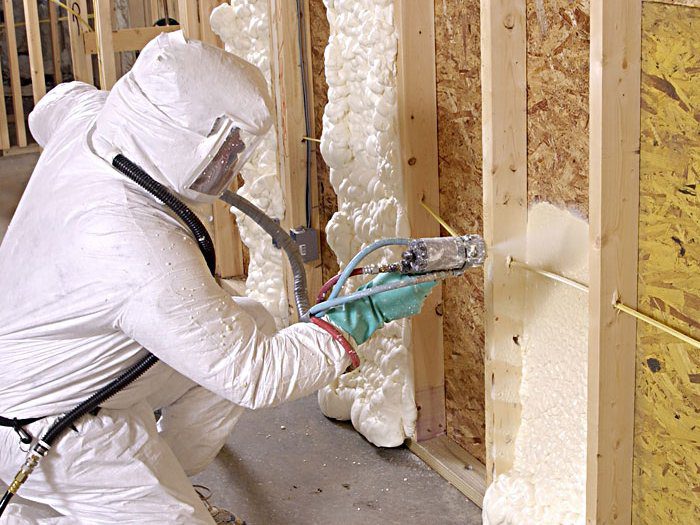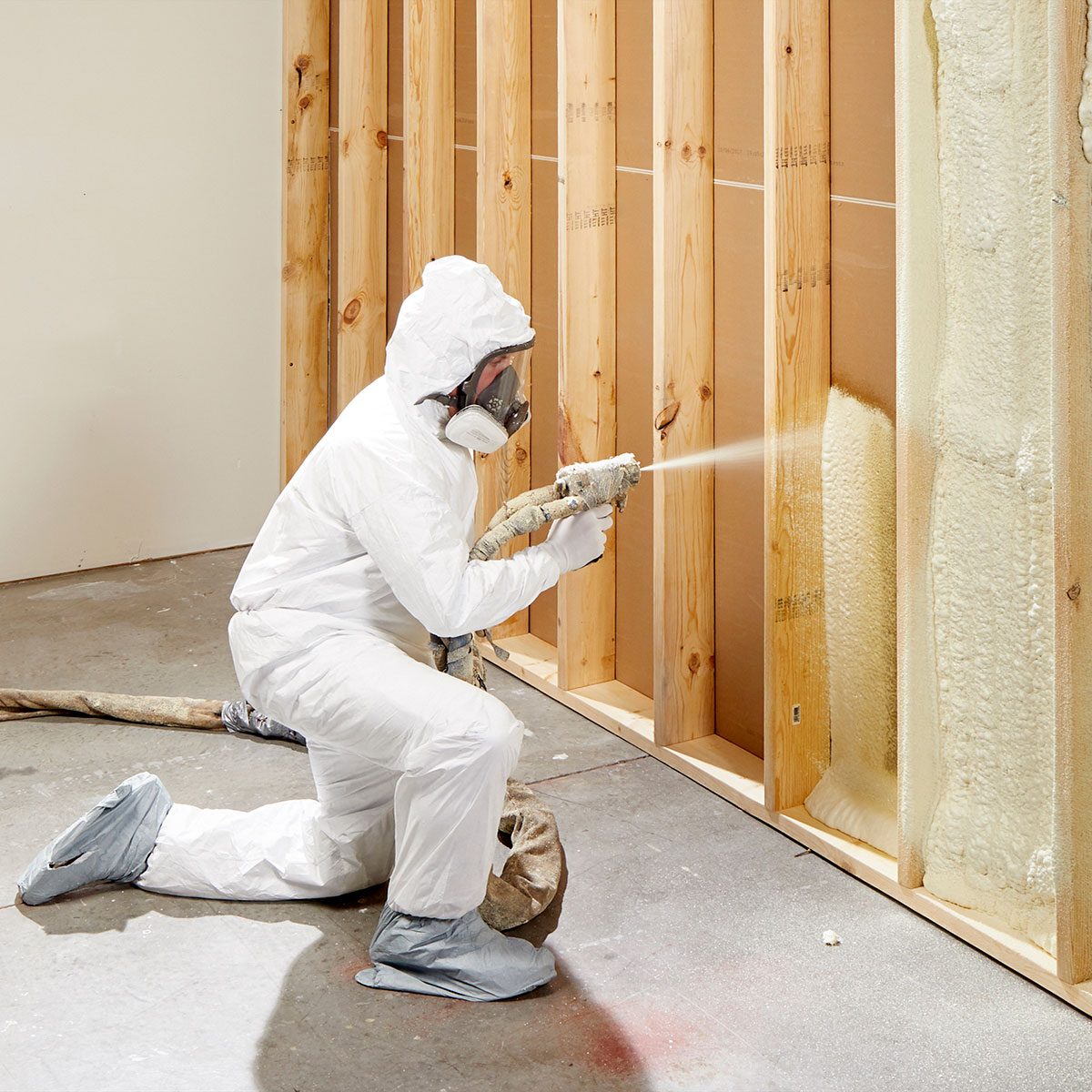Top Factors to Choose Spray Foam for Your Following Insulation Job
When thinking about insulation alternatives for your following task, spray foam stands out due to its impressive performance qualities and performance advantages. As you consider your options, checking out the functional applications and long-lasting advantages of spray foam may expose compelling reasons to incorporate it into your insulation strategy.
Superior Insulation Performance

The high R-value of spray foam, which measures its thermal resistance, is one more crucial benefit. Closed-cell spray foam, for instance, can attain an R-value of as much as 6.5 per inch, significantly outmatching fiberglass batts and cellulose. Additionally, spray foam insulation produces an impermeable seal, which minimizes thermal bridging and decreases the capacity for mold and mildew growth because of moisture build-up.

Energy Efficiency Perks
The power efficiency benefits of spray foam insulation are substantial, more enhancing its allure as a leading choice for developing insulation. Among the primary benefits is its superior thermal efficiency. Spray foam increases upon application, developing an airtight seal that reduces air leaks, which is a typical resource of power loss in typical insulation products. By successfully reducing thermal bridging, it maintains a constant interior temperature level, therefore decreasing heating & cooling costs.
Furthermore, spray foam insulation boasts a high R-value per inch, which means it offers extra thermal resistance in much less area contrasted to options like fiberglass or cellulose (Spray Foam). This effectiveness not only adds to prompt energy savings but additionally advertises long-lasting sustainability by decreasing the general energy consumption of a structure
In addition, the implementation of spray foam can certify house owners for power effectiveness incentives and tax obligation credit scores, including monetary advantages to its energy-saving capacities. In a period where energy conservation is extremely important, picking spray foam insulation not only boosts comfort but also lines up with environmentally accountable techniques, making it a sensible choice for both property and commercial tasks.
Wetness and Mold Resistance
Given its one-of-a-kind structure and application technique, spray foam insulation offers extraordinary dampness and mold and mildew resistance, making it a suitable selection for various settings. The closed-cell structure of spray foam creates a strong obstacle that effectively seals possible dampness ingress, consequently lowering the likelihood of mold growth. Unlike standard insulation products, which can soak up water and provide a breeding ground read more for mold, spray foam remains unsusceptible dampness, enhancing the overall health of the indoor environment.
Furthermore, the application process of spray foam involves broadening and filling up spaces and splits, ensuring a tight seal that reduces air leaks. This characteristic not just boosts power performance yet likewise aids control moisture degrees within the area. Appropriate humidity control is vital for protecting against mold and mildew and mold, making spray foam insulation especially helpful in locations prone to moisture, such as cellars and crawl areas.
In enhancement to its moisture-resistant properties, spray foam is likewise inherently immune to mold and mildew growth. This particular makes certain that buildings and homes stay risk-free and healthy and balanced with time, offering satisfaction to house owners and building managers alike.
Long-Term Price Cost Savings
Investing in spray foam insulation returns considerable lasting expense savings, mostly with boosted energy performance. Unlike standard insulation materials, spray foam develops an dig this airtight seal that decreases air leakage. This decrease in drafts leads to decrease heating & cooling expenses, as heating and cooling systems do not need to work as tough to preserve comfy indoor temperatures.
Additionally, the superior shielding residential or commercial properties of spray foam suggest that homes stay continually comfortable year-round, reducing reliance on energy-consuming appliances. With time, these savings can build up, causing a visible decline in utility bills.
Furthermore, spray foam insulation contributes to the durability of your home's framework by preventing moisture build-up and mold and mildew development, which can lead to expensive repair services. With its durability and resistance to working out, spray foam preserves its efficiency for many years, ensuring that the preliminary financial investment remains to repay.
Essentially, selecting spray foam insulation not just improves your home's energy effectiveness yet additionally converts right into substantial lasting economic advantages, making it a wise investment for homeowners wanting to decrease costs while improving comfort and sustainability.
Versatile Application Options
Numerous application options make spray foam insulation a very functional selection for a variety of building tasks (Spray Foam). This versatility enables it to look here be efficiently utilized in residential, business, and commercial settings, providing to diverse insulation needs
Spray foam can be used in attics, walls, creep areas, and even roof coverings, giving seamless coverage that removes voids and gaps where air leakages frequently happen. Its ability to broaden upon application ensures a limited seal, which is vital for energy performance and wetness control.
Furthermore, spray foam insulation is available in various formulations, consisting of open-cell and closed-cell kinds, permitting tailored options based on details project demands. Open-cell foam is lighter and better fit for soundproofing, while closed-cell foam supplies exceptional insulation and architectural integrity, making it excellent for areas subjected to dampness.
Additionally, spray foam can be used in hard-to-reach spaces, improving its viability for retrofitting existing structures. With the ability to comply with various substratums, consisting of timber, concrete, and steel, spray foam insulation attracts attention as a versatile choice that fulfills the demands of contemporary structure techniques.
Final Thought
Finally, spray foam insulation emerges as a premium alternative for insulation tasks because of its outstanding thermal resistance, energy efficiency, and ability to develop closed seals that avoid moisture and mold and mildew growth. The lasting cost financial savings linked with decreased utility costs additionally enhance its allure. Furthermore, its flexibility in application throughout different settings emphasizes its practicality and effectiveness. Choosing spray foam insulation makes sure an extensive remedy that meets the needs of modern building and construction and energy efficiency criteria.
When it comes to achieving optimum energy effectiveness in household and commercial buildings, spray foam insulation stands out for its exceptional insulation efficiency.The power performance benefits of spray foam insulation are significant, additional boosting its appeal as a leading choice for developing insulation.Spending in spray foam insulation returns substantial long-term cost savings, largely through enhanced energy effectiveness.In verdict, spray foam insulation emerges as a superior choice for insulation tasks due to its extraordinary thermal resistance, energy effectiveness, and ability to produce impermeable seals that avoid moisture and mold growth. Picking spray foam insulation ensures a detailed service that satisfies the demands of modern construction and energy performance criteria.